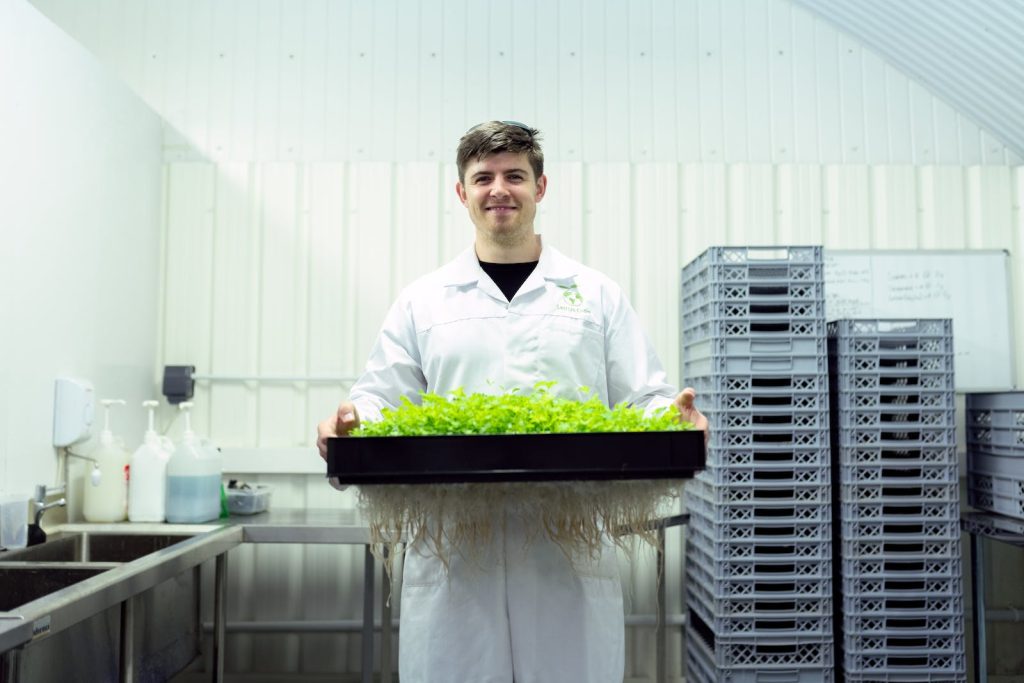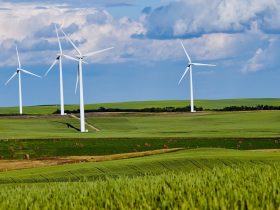In recent years, there has been a growing interest in ethical investments, particularly in the field of sustainable agriculture. As consumers become more conscious of the impact of their choices on the environment and society, they are seeking investment opportunities that align with their values. Sustainable agriculture, which focuses on environmentally friendly and socially responsible farming practices, has emerged as a promising sector for ethical investors.
This comprehensive guide aims to provide an in-depth understanding of ethical investments in sustainable agriculture. We will explore the key concepts, benefits, and challenges of investing in this sector. Additionally, we will discuss various investment options and strategies to help you make informed decisions. So, let’s dive into the world of ethical investments in sustainable agriculture.
Understanding Ethical Investments
Ethical investments, also known as socially responsible investments (SRI) or sustainable investments, are financial investments made in companies or projects that align with certain ethical, social, and environmental criteria. The goal of ethical investments is to generate positive social and environmental impacts while also achieving financial returns. Investors who prioritize ethical investments seek to support businesses that promote sustainability, social justice, and responsible governance.
Ethical investments in sustainable agriculture are a subset of ethical investments that specifically focus on supporting farming practices that are environmentally friendly, socially responsible, and economically viable. These investments can include organic farming, regenerative agriculture, permaculture, and other innovative approaches that prioritize the long-term health of the planet and its inhabitants.
The Importance of Sustainable Agriculture
Sustainable agriculture refers to a farming system that aims to meet the needs of the present generation without compromising the ability of future generations to meet their own needs. It focuses on practices that minimize environmental impact, promote biodiversity, and ensure the well-being of farmers and local communities. Sustainable agriculture is crucial for addressing pressing global challenges such as climate change, food security, and rural development.
By investing in sustainable agriculture, individuals and organizations can play a vital role in supporting the transition towards a more sustainable and resilient food system. Sustainable agriculture practices reduce the use of synthetic chemicals, conserve water resources, protect soil health, and promote biodiversity. These practices not only benefit the environment but also lead to healthier food production, improved livelihoods for farmers, and stronger local communities.
Benefits of Ethical Investments in Sustainable Agriculture
Investing in sustainable agriculture offers a range of benefits, both for investors and society as a whole. Here are some key advantages:
Environmental Impact
Ethical investments in sustainable agriculture contribute to the preservation and restoration of ecosystems. By supporting farming practices that minimize chemical inputs, promote soil health, and protect water resources, investors can help mitigate climate change, reduce pollution, and conserve biodiversity. These investments play a crucial role in transitioning the agricultural sector towards more sustainable and regenerative practices.
Social Responsibility
Investing in sustainable agriculture supports the well-being of farmers and local communities. Ethical investors can contribute to fair trade practices, support small-scale farmers, and promote social equity in the agricultural sector. This can lead to improved livelihoods, reduced poverty, and enhanced food security in rural areas. Ethical investments in sustainable agriculture empower communities and foster sustainable development.
Financial Returns
Contrary to the misconception that ethical investments yield lower financial returns, sustainable agriculture can be a profitable sector. As the demand for organic and sustainably produced food continues to rise, companies in the sustainable agriculture industry have the potential for long-term growth and profitability. Additionally, ethical investments can attract socially conscious consumers, leading to increased market share and brand loyalty.
Portfolio Diversification
Investing in sustainable agriculture provides an opportunity for portfolio diversification. By allocating a portion of your investment portfolio to ethical investments, you can reduce the risk associated with traditional investments and potentially enhance overall returns. Sustainable agriculture offers a unique asset class that is not directly correlated with traditional financial markets, providing a hedge against market volatility.
Positive Impact on Future Generations
Ethical investments in sustainable agriculture have a long-term perspective, focusing on the well-being of future generations. By supporting sustainable farming practices, investors can contribute to a healthier and more resilient food system for future populations. This long-term impact is a powerful motivator for ethical investors who prioritize the well-being of the planet and future generations.

Challenges of Ethical Investments in Sustainable Agriculture
While ethical investments in sustainable agriculture offer numerous benefits, there are also challenges to consider. These challenges include:
Limited Market Opportunities
Compared to other sectors, the market opportunities for ethical investments in sustainable agriculture may be relatively limited. The sustainable agriculture industry is still emerging and may not have as many investment options as more established sectors. However, as awareness and demand for sustainable agriculture continue to grow, so too will the investment opportunities.
Complexities of Agriculture
Investing in agriculture can be complex due to the inherent uncertainties and risks associated with farming. Factors such as weather conditions, pests, diseases, and market fluctuations can significantly impact agricultural production and profitability. Investors in sustainable agriculture need to have a deep understanding of the sector and be prepared to navigate these complexities.
Regulatory and Policy Considerations
The agricultural sector is subject to various regulations and policies that can affect investment decisions. Ethical investors need to stay informed about relevant regulations related to organic farming, land use, water management, and labor practices. Compliance with these regulations is essential to ensure that investments align with ethical and sustainable principles.
Financial Performance
While sustainable agriculture can be financially rewarding, there is no guarantee of high returns. As with any investment, there are risks involved, and financial performance can vary depending on multiple factors. Investors should carefully assess the financial viability and profitability of specific projects or companies before making investment decisions.
Impact Measurement and Reporting
Measuring the impact of ethical investments in sustainable agriculture can be challenging. Unlike traditional financial metrics, impact measurement requires a deeper understanding of environmental and social indicators. Investors need to consider how they will measure and report the positive outcomes of their investments to stakeholders and ensure transparency in their reporting.
Despite these challenges, ethical investments in sustainable agriculture offer a unique opportunity to make a positive impact on the planet and society while also achieving financial returns. With careful consideration and due diligence, investors can navigate these challenges and contribute to a more sustainable future.
Investment Options in Sustainable Agriculture
There are various investment options available for those interested in ethical investments in sustainable agriculture. Here are some key options to consider:
Direct Investments
Direct investments involve investing directly in agricultural projects or farms. This can include purchasing farmland, supporting organic farming initiatives, or funding regenerative agriculture projects. Direct investments provide investors with more control and visibility over their investments, allowing them to actively participate in the sustainable agriculture sector.
Impact Funds
Impact funds are investment vehicles that specifically focus on generating positive social and environmental impacts alongside financial returns. There are impact funds dedicated to sustainable agriculture that pool investments from multiple investors and allocate them to projects and companies in the sector. Investing in impact funds provides diversification and professional management of investments.
Sustainable Agriculture Stocks
Investors can also consider investing in publicly traded companies that operate in the sustainable agriculture industry. These companies may be involved in organic food production, agricultural technology, or sustainable farming practices. Investing in sustainable agriculture stocks allows investors to participate in the growth of the sector while benefiting from the liquidity and transparency of public markets.
Crowdfunding Platforms
Crowdfunding platforms provide an alternative way to invest in sustainable agriculture projects. These platforms connect investors with farmers or agricultural entrepreneurs seeking funding for their projects. By investing through crowdfunding platforms, individuals can support specific projects or farms that align with their values and contribute to the growth of sustainable agriculture.
Green Bonds
Green bonds are fixed-income securities specifically issued to finance environmentally friendly projects. Some green bonds are dedicated to sustainable agriculture, providing investors with an opportunity to support the sector while earning fixed returns. Investing in green bonds can be a lower-risk option for those seeking stable income from ethical investments.
It is important for investors to carefully evaluate each investment option, considering factors such as risk tolerance, investment horizon, and personal values. Diversification across different investment options can help mitigate risks and maximize the positive impact of ethical investments in sustainable agriculture.
Strategies for Ethical Investments in Sustainable Agriculture
To optimize the impact and returns of ethical investments in sustainable agriculture, it is essential to develop a well-defined investment strategy. Here are some strategies to consider:
Thematic Investing
Thematic investing involves focusing investments on specific themes or sectors that align with your values and interests. In the context of sustainable agriculture, thematic investing could involve targeting investments in organic farming, regenerative agriculture, or sustainable food production. By concentrating investments in specific themes, investors can deepen their impact and contribute to the growth of targeted sectors.
ESG Integration
Environmental, Social, and Governance (ESG) integration involves considering environmental, social, and governance factors when making investment decisions. In the context of sustainable agriculture, ESG integration could involve assessing the sustainability practices of companies or projects before investing. By incorporating ESG considerations, investors can ensure that their investments align with their ethical and sustainability goals.
Active Engagement
Active engagement refers to actively participating in the companies or projects in which you invest. Ethical investors can engage with management teams, attend shareholder meetings, and advocate for sustainable practices. By actively engaging with investee companies, investors can influence decision-making processes and promote positive change within the sustainable agriculture sector.
Impact Measurement and Reporting
Impact measurement and reporting are essential components of ethical investments in sustainable agriculture. Investors should establish clear metrics and indicators to measure the social, environmental, and financial impact of their investments. This allows for transparency and accountability, ensuring that investments are delivering the intended outcomes.
Investors can work with specialized impact measurement organizations or consultants to develop robust frameworks for measuring impact. These frameworks can include indicators such as greenhouse gas emissions reduction, water conservation, job creation, and community development. By regularly monitoring and reporting on impact, investors can demonstrate the effectiveness of their investments and attract more capital to the sustainable agriculture sector.
Collaboration and Partnerships
Collaboration and partnerships play a crucial role in maximizing the impact of ethical investments in sustainable agriculture. Investors can collaborate with other like-minded individuals, organizations, and institutions to pool resources, share knowledge, and leverage collective expertise. This can lead to larger-scale projects, increased efficiency, and greater influence in driving positive change.
Investors can also partner with farmers, agricultural cooperatives, and local communities to co-create sustainable agriculture projects. By involving stakeholders in the decision-making process, investors can ensure that investments address the specific needs and priorities of the communities they aim to benefit. Collaboration and partnerships foster a sense of shared ownership and responsibility, leading to more sustainable and inclusive outcomes.
Case Studies: Successful Ethical Investment Projects
To illustrate the potential of ethical investments in sustainable agriculture, let’s explore a few case studies of successful projects:
Organic Farming Cooperative in California
A group of ethical investors came together to support the establishment of an organic farming cooperative in California. The cooperative aimed to provide small-scale farmers with access to land, resources, and markets, enabling them to transition to organic farming practices. The ethical investors provided funding for land acquisition, infrastructure development, and marketing initiatives. The cooperative has since flourished, supporting local farmers, promoting organic agriculture, and supplying organic produce to the community.
Regenerative Agriculture Project in Brazil
An impact fund specializing in sustainable agriculture invested in a regenerative agriculture project in Brazil. The project focused on restoring degraded farmland through holistic farming practices, including agroforestry, cover cropping, and rotational grazing. The impact fund provided funding for land rehabilitation, training for farmers, and the establishment of value chains for regeneratively produced products. The project not only restored the land’s productivity but also improved soil health, increased biodiversity, and created sustainable livelihoods for local farmers.
Sustainable Food Production Company in the Netherlands
A group of ethical investors supported the growth of a sustainable food production company in the Netherlands. The company specializes in vertical farming, using innovative technologies to produce fresh, pesticide-free vegetables in urban areas. The ethical investors provided capital for expanding production facilities, research and development, and market expansion. The company has become a leader in sustainable food production, supplying local markets with high-quality produce while minimizing environmental impact.
These case studies demonstrate the diverse range of ethical investment projects in sustainable agriculture. Each project addresses specific environmental and social challenges while generating financial returns for investors. Ethical investments have the power to transform the agricultural sector, promoting sustainable practices, supporting local communities, and ensuring a resilient food system for future generations.
Conclusion
Ethical investments in sustainable agriculture offer a unique opportunity to align financial goals with environmental and social values. By investing in farming practices that prioritize sustainability, investors can contribute to the preservation of ecosystems, the well-being of farmers, and the development of resilient food systems. Ethical investments in sustainable agriculture not only generate positive impacts but also offer financial returns and diversification opportunities.
To make informed investment decisions, it is crucial to understand the concepts, benefits, and challenges of ethical investments in sustainable agriculture. By considering various investment options, developing investment strategies, and measuring impact, investors can optimize their contributions to a more sustainable future. Collaboration and partnerships further enhance the effectiveness of ethical investments, fostering a sense of shared responsibility and collective action.
As the demand for sustainable and ethical investments continues to grow, the field of sustainable agriculture presents exciting opportunities for investors. By embracing ethical investments in sustainable agriculture, individuals and organizations can play an active role in shaping a more sustainable and equitable world.
Remember, ethical investments are not only about financial returns but also about creating a positive impact on the planet and society. So, let’s embark on this journey of ethical investments in sustainable agriculture and contribute to a better future for all.

































